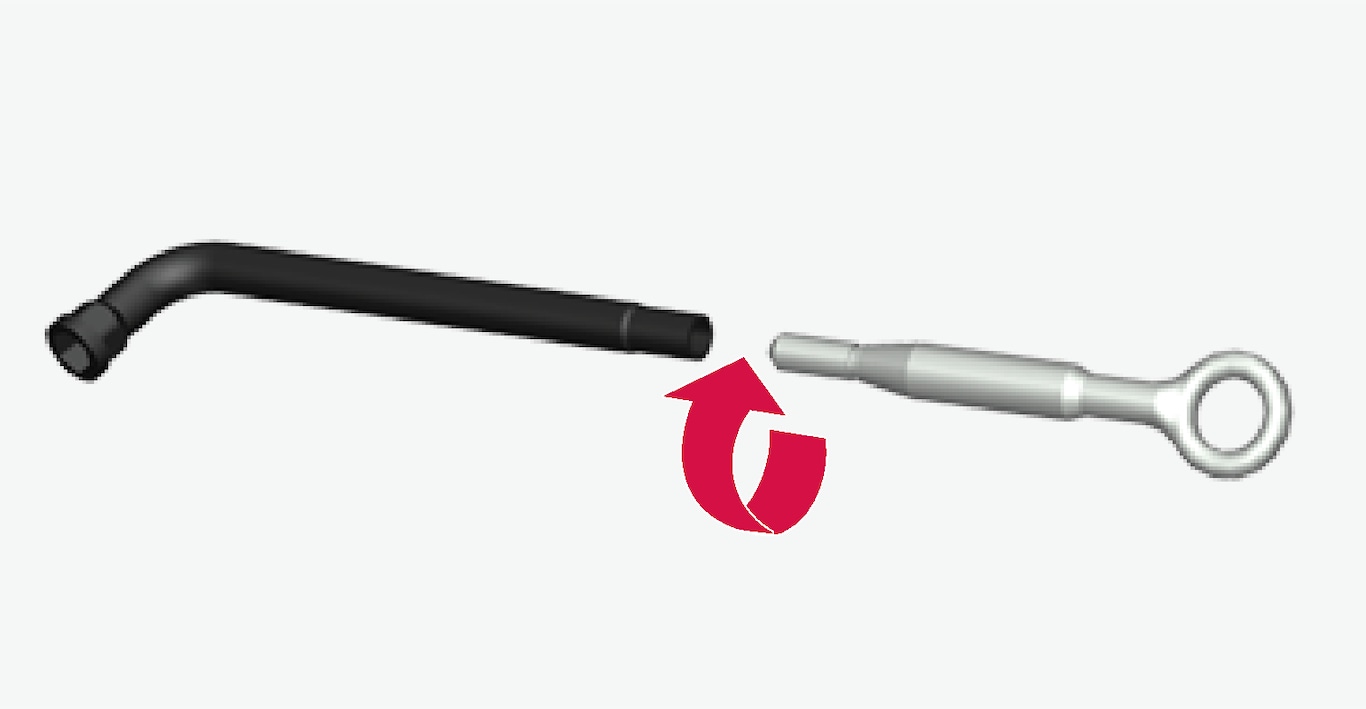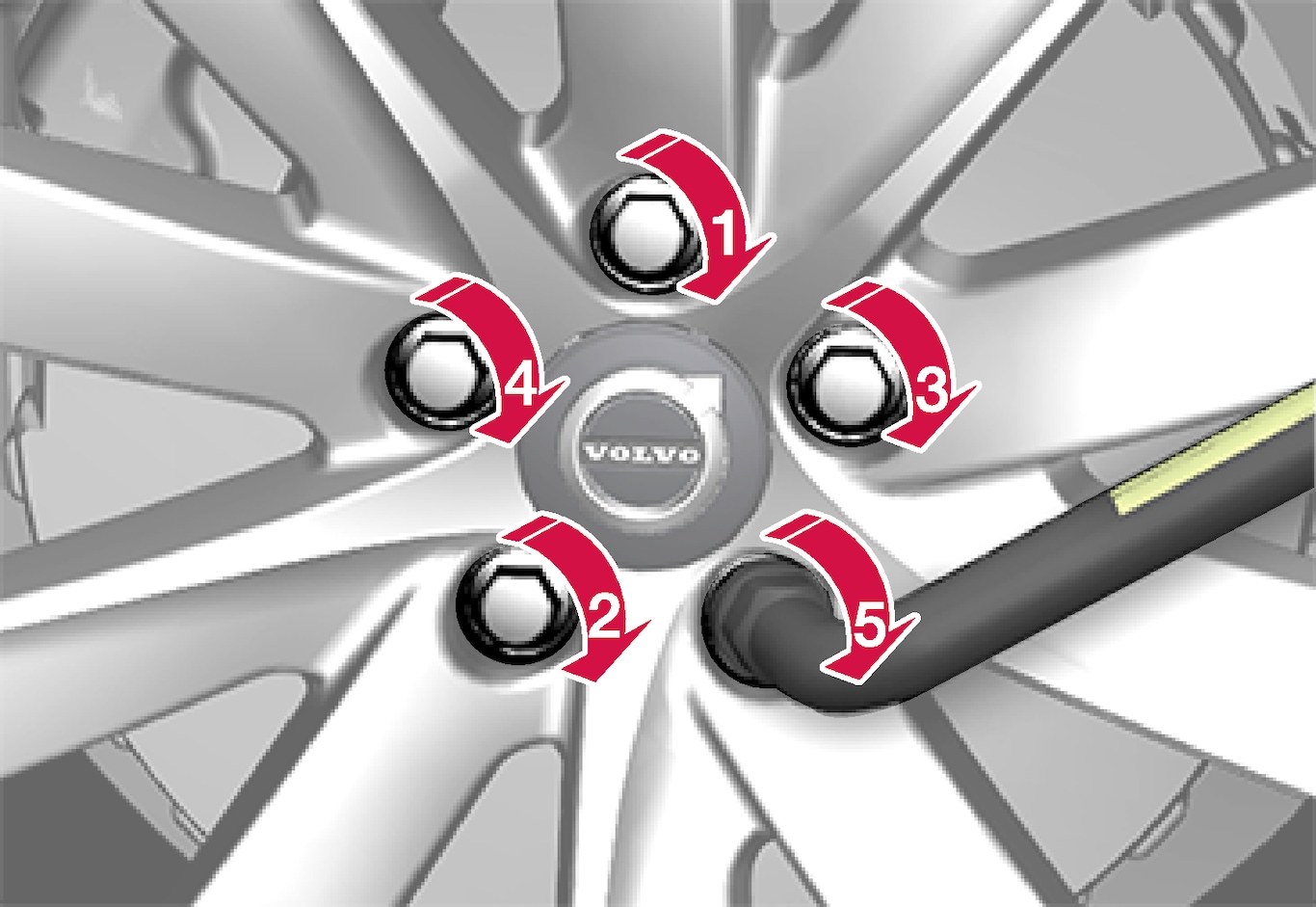Changing wheel
Warning
- If a wheel must be changed in a trafficked environment, passengers must stand in a safe place.
- Use a jack* designed for the car when changing tyres. Use supports to secure the car for all other work.
- Never crawl under the car or reach under with a part of your body when it is raised on a jack.
- Passengers must leave the car when it is raised on the jack.
Important
If a jack* is included with the car, it is only designed for occasional, short-term use, such as when changing a wheel after a puncture. Only the jack belonging to the specific model is to be used to jack up the car. If the car is to be jacked up more often, or for a longer time than is required just to change a wheel, use of a garage jack is recommended. In this instance, follow the instructions for use that come with the equipment.
When the jack is not in use it should be stored in its storage space under the cargo area floor. Crank the jack down for it to fit.
Removing a wheel
Activate the hazard warning flashers and set out a warning triangle if a wheel shall be changed in a trafficked location.
Screw together the towing eye with the wheel wrench* to the stop position.

Mounting a wheel
Put on the wheel. Ensure that the correct dimension is fitted in the correct position for cars with different front and rear tyre or wheel dimensions. Tighten the wheel bolts thoroughly.
Do not use lubricant on the threads of the wheel bolts.
Tighten the wheel bolts crosswise. It is important that the wheel bolts are tightened properly. Tighten to 140 Nm (103 foot-pound). Check the tightening torque with a torque wrench.

Warning
Note
- After a tyre has been inflated, always refit the dust cap in order to avoid damage to the valve from gravel, dirt, etc.
- Only use plastic dust caps. Metal dust caps can rust and become difficult to unscrew.